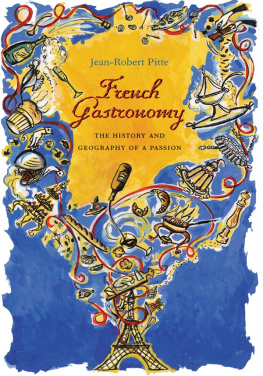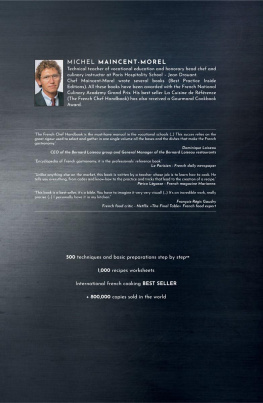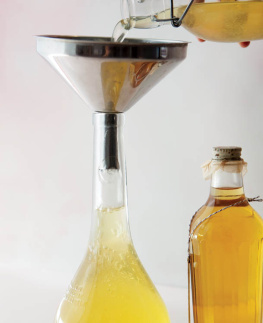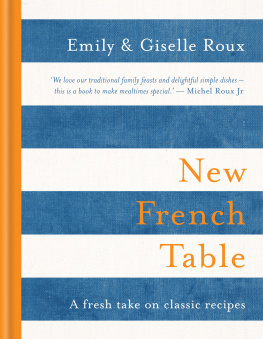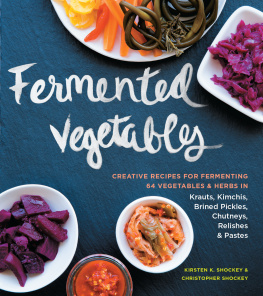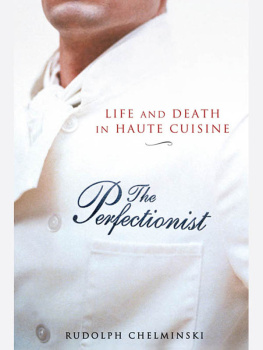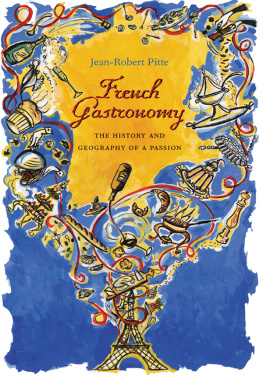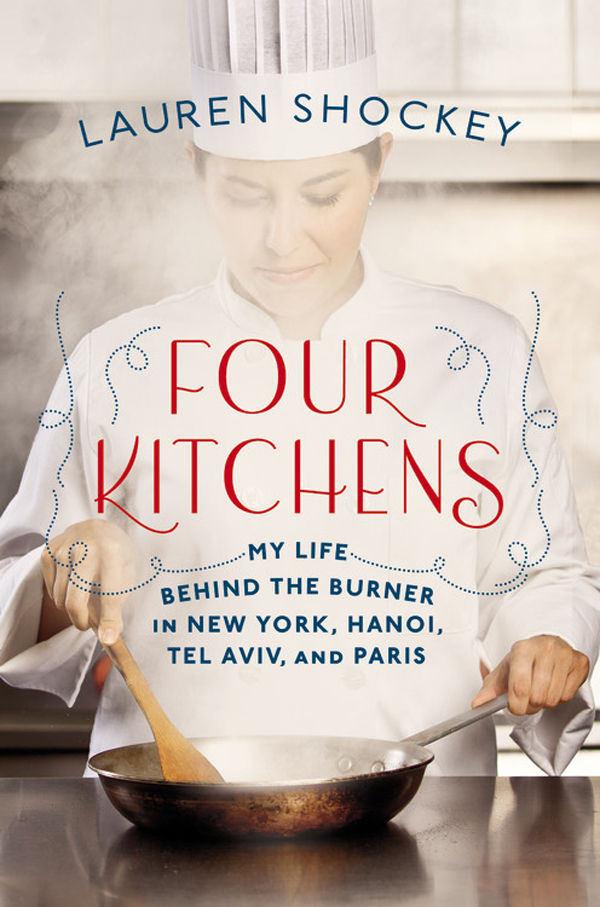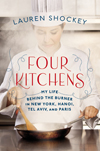
The names and some identifying characteristics of some persons in this book have been changed.
Copyright 2011 by Lauren Shockey
All rights reserved. Except as permitted under the U.S. Copyright Act of 1976, no part of this publication may be reproduced, distributed, or transmitted in any form or by any means, or stored in a database or retrieval system, without the prior written permission of the publisher.
Grand Central Publishing
Hachette Book Group
237 Park Avenue
New York, NY 10017
Visit our website at www.HachetteBookGroup.com.
www.twitter.com/grandcentralpub.
First eBook Edition: July 2011
Grand Central Publishing is a division of Hachette Book Group, Inc.
The Grand Central Publishing name and logo is a trademark of Hachette Book Group, Inc.
The publisher is not responsible for websites (or their content) that are not owned by the publisher.
ISBN: 978-0-446-57612-3
To Cathy and George
Writing a book of this scope was not a simple task and could not have been done without the help of many, many people.
Most important, to Wylie Dufresne and the staff of wd~50, Didier Corlou and the staff of La Verticale, Daniel Zach and the staff of Carmella Bistro, and Alain Senderens and Jrme Banctel and the staff of Senderensthank you all for the enormous privilege of working beside you in the kitchen and for teaching me how to cook. Because of all of you, I truly know what it means to be a chef, and I have the utmost respect for people who make their living behind the stove.
Emily Griffin, my wonderful editor at Grand Central Publishing, helped shape this book with her insightful comments and unwavering support.
I am deeply grateful to Jenni Ferrari-Adler who took a chance on me and on my idea. Thanks for being an outstanding editor who just happens to also be my outstanding agent.
I would like to thank everyone at Grand Central Publishing for helping to produce and champion this book, especially Jen Musico, Tareth Mitch, and Diane Luger. Thank you also to Sona Vogel for being an amazing copy editor and to Deborah Feingold for taking the cover photo.
My narrative became infinitely better thanks to Ellen Gordon Reeves who read the entire manuscript despite barely knowing me. Krishnendu Ray also provided me with considerable academic assistance, editorial advice, and personal mentorship. And Id like to thank the people who reviewed my book proposal long before there was ever a deal in sightIrene Sax, Laura Shapiro, and especially Amanda Hesser, who graciously responded to my fan letter six years ago and has been a friend ever since. A big thumbs up also goes to Stephanie Bourgeois, who tested what seemed like all of the Vietnamese recipes in one sitting, and Alainna Lynch for taking my author photo.
Undertaking a project like this was not an inexpensive endeavor yet I was fortunate enough to receive grant money from New York University and from the Culinary Trust/the Julia Child Foundation to help fund my travel expenses.
I met so many amazing people outside of the professional kitchen during my travels, and I am lucky to now count the following among my friends: Sami El-Sawi and Beatrice Wandelmer, Rebecca Palkovics, Andrew Burman, Belinda ODea, Sally Gardner, Suchi Bansal, Hung Ba, Coreen Kopper, Kate Rosenshine, Asher Gelman, Mati Bar, Alex Fred, Sharon Labaton, Natan Gesher, Carole and Andrea Rogerson, Max Shrem, Tom Samiljan, Paule Caillat, Steve Zylbersztejn, John Gabriel, Joe Navin, and Nell McBride. Other people who were instrumental in the logistics and planning of this project include: Caitlin Aherne, Eric Murnighan, Marc Bauer, Rebecca Vitale, Daniel Vo, Hannah Janal, Rupa Bhattacharya, and Christine Muhlke.
And to Cathy and George Shockey: I couldnt have asked foror found anywheremore devoted line editors, recipe testers, personal assistants, cheerleaders, and, most important, loving parents. Thank you for giving me the opportunity to pursue my dreams and for believing in this book before I had written a single word on the page.
If you cant take the heat, get out of the kitchen.
Attributed to Harry S. Truman
An qua nho ke trong cay.
(When eating a fruit,
think of the person who planted the tree.)
Vietnamese proverb

(He who eats alone dies alone.)
Hebrew proverb
Un bon repas doit commencer par la faim.
(A good meal must begin with hunger.)
French proverb
HERES A $40,000 SECRET . For all of its glamour and mystique, I learned only three things in culinary school: how to salt food properly, not to fear cooking over high heat, and to knock back beers like a pro. Nearly every chef who attended culinary school will tell you that your real education begins once youre working in a restaurant. And that its a hell of a lot harder than any class.
Culinary school wasnt an obvious choice for me after I graduated from the University of Chicago in 2006. When I returned home to New York City, my parents expected me to pursue a real (read: office) job befitting my almost two decades of rigorous schooling, but I saw things differently.
I want to cook, I announced to them one evening at the dinner table.
You can cook any night you want. Think of it as earning your room and board here at home until you find a job, my mom joked.
No, I said. I want to really cook. In a restaurant.
Lauren, dont be silly. Think about the money weve spent on your education. What was the point of all that hard work?
Maybe I shouldnt have gone to college, I said, pushing her buttons.
Dont be ridiculous, she said.
So if you become a cook, will the Bank of George Shockey be supplementing your nine-dollar-an-hour income? said my father, finally mustering the energy to take part in our debate.
Money doesnt always bring happiness, you know, I said.
Maybe not, but it does pay the bills, said my father. Maybe he was right. There might be a reason that chef jobs werent advertised on the University of Chicagos career counseling website.
Yet despite the repetitive and sometimes menial aspects, I saw cooking as an intellectual process. Its been argued that cookingthat is, applying fire to foodis what spurned our evolutionary development and made us human. Even though techniques and ingredients differ across oceans and lands, cooking is performed multiple times a day in every single culture in the world. It nourishes our bodies and propels our existence.
We can trace the rise and fall of modern civilizations by examining the transport and consumption of specific foods like salt, sugar, peppercorns, apples, or potatoes. We can learn more about a specific culture by analyzing the foods it cultivates or by discovering its culinary taboos; a book of recipes from a particular era is a diary of cultural tastes and mores. I love reading cookbooks and recipes for the stories they tellwhether they are about a famous chef, a home-cooking guru, a celebrated restaurant, a cuisine, or a cultureas much as for their recipes.
But cooking has always attracted me for other, more personal reasons. I wanted to cook because of the calmness that washes over me when I peel the ruddy outer layer of a carrot. As the blade emits soft grating sounds and thin strips of nearly translucent flesh fall into the garbage can, I contemplate the range of possibilities at hand. I can shred the carrot and transform it into a salad; I can chop it in chunks and boil it in salted water; I can leave it whole, rubbed in Moroccan spices, and grill it until caramelized; I can cut it in pieces, dip it in tempura batter, and fry it until golden brown; I can dice it and saut it in a wok with sesame oil; or I can eat it plain and simple. I can follow any number of carrot recipes, or I can invent my own recipe on the spot. With cooking, the opportunities for creativity are boundless.


